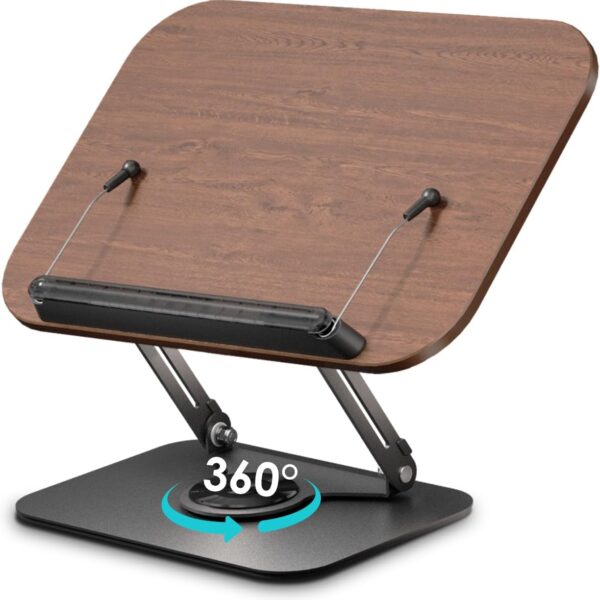
Your Museum Needs a Podcast: A Step-By-Step Guide to Podcasting on a Budget for Museums, History Organizations, and Cultural Nonprofits
Apple Shopping Event
Hurry and get discounts up to 20% Read more
$13.99
Authorities in our business will tell in no uncertain terms that Lorem Ipsum is that huge, huge no no to forswear forever. Not so fast, I'd say, there are some redeeming factors in favor of greeking text, as its use is merely the symptom of a worse problem to take into consideration.
Anyway, you still use Lorem Ipsum and rightly so, as it will always have a place in the web workers toolbox, as things happen, not always the way you like it, not always in the preferred order.
Product details
Made possible by exploring innovative molded plywood techniques, Iskos-Berlin’s Soft Edge Chair blends strong curves with extreme lightness to create a three-dimensionality not usually possible with 2-D plywood.
Description
Price: $13.99
(as of Mar 20, 2025 15:17:59 UTC – Details)
Want to start a podcast for your organization, but unsure of where to begin? Looking for new ways to meaningfully engage your audience?
Need to convince leadership that a podcast is the right move for your museum, history organization, library, religious institution, or cultural nonprofit?
This practical and action-oriented beginner’s guide will show you how to create a great podcast on a budget, from choosing a topic to reaching the right audience.
Each chapter is tailored to the needs of cultural nonprofits, giving you a detailed roadmap for producing a podcast that supports your institutional mission. Inside, you’ll find simple, concise advice and instruction that gives you just what you need to get started, without any treatises on sound engineering or editing.
All the unnecessary stuff has been left out so you can just read the book, follow the instructions, and get started without breaking the bank or wasting hours wading through incomplete instructions on the internet.
In Your Museum Needs a Podcast, award-winning podcaster Hannah Hethmon will teach you how to unlock the power of podcasting at your institution through:
A whole chapter on developing a show concept that will accomplish your organization’s goals and pitching it to your stakeholders. A gear guide with just what you need to know to get started and tailored equipment recommendations. Detailed instructions on how to set-up your recording equipment, get great sound quality (without having to learn sound engineering), and edit episodes using free online software.A breakdown of what makes a podcast compelling and how you can use the art of storytelling to create a show that your listeners will love. Strategies for launching your show and building a devoted listener base from day one.Answers to common questions like where to how long episodes should be, where to find free music, which hosting service to use, how to hire outside experts, and more.Free worksheets and templates to help you implement the book’s lessons.
Read this book, and you’ll know everything you need to start a podcast for your organization and turn your audience into devoted fans.
What are you waiting for? How long will you wait to start engaging your core audience, reaching new audiences who would love your institution, and increasing your online profile?
Scroll to the top now and click the Buy Now” Button!
Publisher : Independently published (September 22, 2018)
Language : English
Paperback : 109 pages
ISBN-10 : 1723931020
ISBN-13 : 978-1723931024
Item Weight : 6.4 ounces
Dimensions : 6 x 0.25 x 9 inches
Customers say
Customers find the book informative and practical, providing a comprehensive guide to podcasting. They describe it as an easy read with clear writing that is engaging. Readers appreciate the chapter on storytelling, finding it exciting and interactive. Overall, they praise the sound quality as good.
Customer Reviews
8 reviews for Your Museum Needs a Podcast: A Step-By-Step Guide to Podcasting on a Budget for Museums, History Organizations, and Cultural Nonprofits
Clear filtersOnly logged in customers who have purchased this product may leave a review.


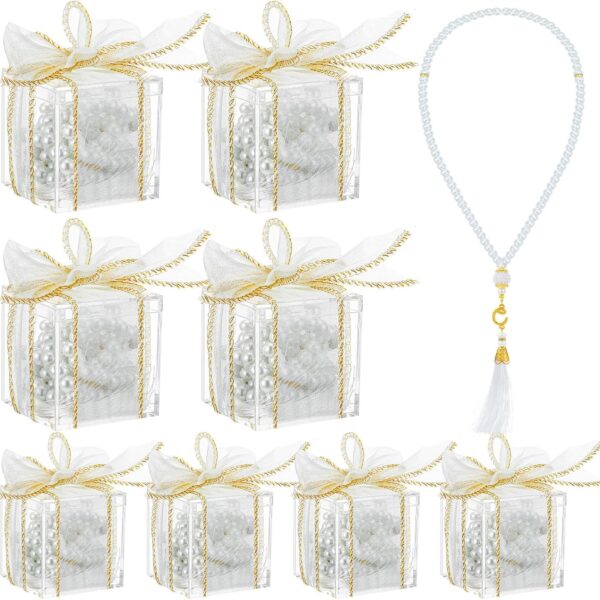
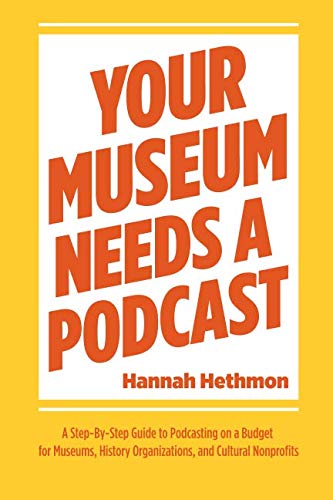
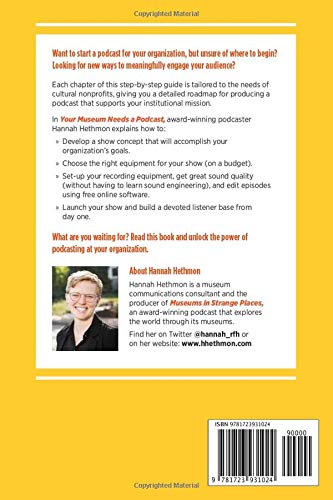
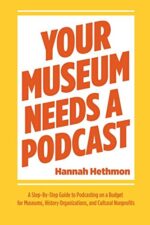
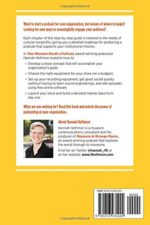





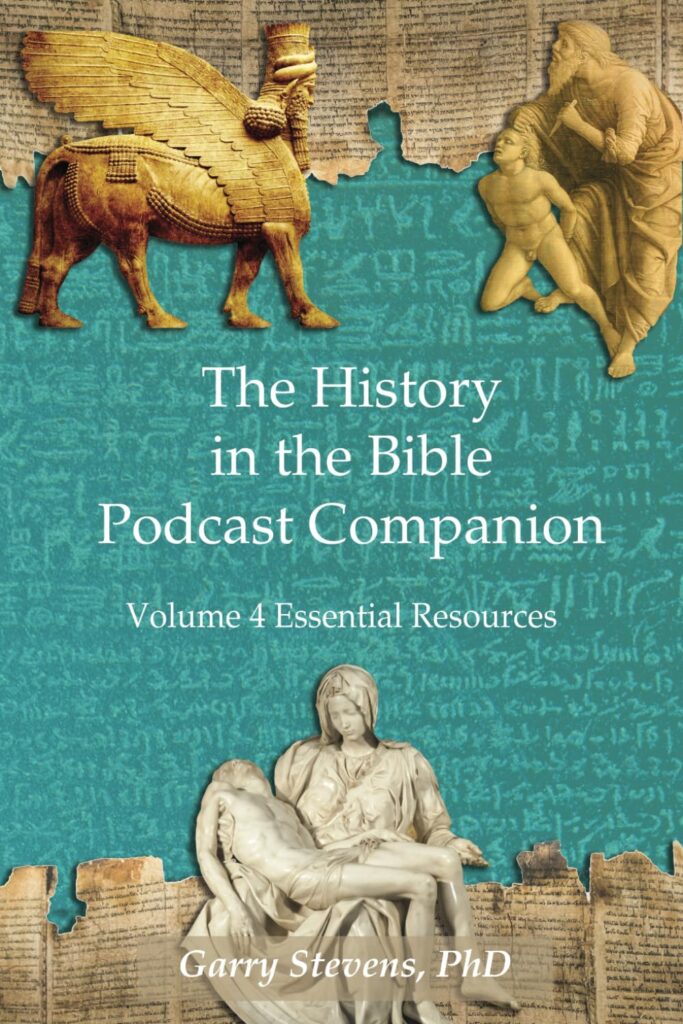

John Dichtl –
What a Great Guide to Successful Podcasting
Exactly as promised, this is a concise, crystal clear guide written with verve and very much in a coaching tone. More than that, it’s written with empathy. The author went through hundreds of hours of trial and error in creating her own podcast, and wants to save others the time of figuring out their next steps. She has interviewed lots of other experts, analyzed lots of podcats of all types, and has written a book that will get readers started right away in finding their own niche for their museum- or historic-site-based production.I was curious enough to start the book expecting to quickly shelve it for reference later, on that “someday” when I might start thinking about a podcast. But I was hooked after the first chapter, as curious about the author’s telling of her own learning process in creating her “Museums in Strange Places” podcast as I was about what it would take to create my own. It’s a quick read that covers a lot of specific details and very practical advice. She covers everything from how to find a strategic niche for a podcast to how to pitch it to a board of directors, how to name a podcast to what kind of microphone and editing software to use, to various ways of constructing a script and reading it, to marketing tactics you might consider. “Here are the options,” she seems to say; “These are most practical, and I’ll save you time by letting you know that this is what I did and here’s why it was a good or bad decision.” Oftentimes she’s able to give examples of current podcasts that you can refer to in order to hear what a choice of microphone or production technique will result in, or how a specific marketing technique plays out. And always she makes it feel concrete and personal by referring to her own experience:”…with hard floors and tall ceilings and nowhere to set up a permanent recording space, so before I upgraded to the collapsible sound shield, I would open my wardrobe, hang a blanket over the doors, and use a scissor boom arm stand to hold the microphone in front of hanging clothes while recording my scripts. I’m not saying this is a perfect setup, but it did the job, and my sound came out pretty good.” (p.36)Or… “Also, watch out for wind. When I was recording … wind was the single biggest reason for unusable audio. If you must record outdoors in a windy location, try to get behind something that will keep the wind from hitting your mic directly or use your body as a windbreak.” (p.37)Or…”You can also try reading the script in a few funny voices or accents in order to get out of your own head.” (p.53)A truly enjoyable reading experience, “Your Museum Needs a Podcast” is a one-on-one workshop with a dynamic instructor that you can keep on your bookshelf to consult anytime.
Michael M. –
A helpful guide from a friendly face
With the overwhelming surge in popularity podcasting has seen in recent years, the medium now dominating dinner conversations and social media postings, it’s no surprise that businesses, organizations, and enthusiastic hobbyists alike have begun exploring the format as a means to achieve both exposure and education. Like any art, the finished product belies the nuances of its production, leading many to flounder and give up or (perhaps worse) publish an unpolished piece that misses the mark altogether.Enter, then, Hannah Hethmon, whose time creating her award-winning Museums In Strange Places podcast gave her more than enough first-hand experience with the challenges of podcasting to write with confidence to an audience in desperate need of a how-to or two. Her authority shines through in conjunction with her warmth, keeping a cordial but conversational tone that invites casual listeners and business-minded podcasting hopefuls to get ahead of the curve.Though the book addresses the technological minutiae of creating a podcast, Hethmon makes it clear that the focus here is professionalism and podcasting, as she couches these details in both a detailed guide to structuring a podcast and the logistical details of how, when, and where to best market a podcast for professional purposes. Ultimately, these points coalesce to a grander point about the necessity and benefit of pairing a museum or public history organization with a podcast. She spares no expense in highlighting the accessibility and prevalence of the podcast, emphasizing that the medium offers a way to bolster the visibility of such a space while inviting podcast-focused visitors and yet-unengaged parties with similar interests to share in the publication of history.Perhaps most helpful (and interesting) section of the book lies in Hethmon’s textual flowchart to identifying audience, purpose, and the required production levels to properly address each. By offering a series of guiding questions with her own talking points, she creates here a heuristic tool that helps aspiring professional podcasters understand not just what they will deliver, but also how those ideas are delivered and why those vehicles will best suit their needs. It is this sort of guiding hand prevalent throughout the book that illustrates Hethmon’s familiarity with the subject matter and the alien nature of venturing into a new medium. Through this, she establishes herself as mentor and friend, this positioning her strongest asset that she utilizes well.Make no mistake – at its heart, Your Museum Needs A Podcast is, as one would expect, tailored foremost towards museums seeking to create podcasts (or that didn’t know they needed one). However, Hethmon’s writing captivates in such a way that the book is a worthy buy for any reader of any experience level re: podcasting, from hobbyist to producer to podcast-hater. She conveys a universal appeal and a gentle push to recognize that all art has value; some, though, may have more value for your business than others.
Stephanie Hatcher –
A comprehensive how-to for ANYONE who wants to podcast.
Don’t let the title fool you – Hethmon’s comprehensive guide to podcasting is a must-read for anyone who has an idea they want to turn into a podcast. Hethmon draws on her own experiences podcasting (check out her award-winning “Museums in Strange Places”) and tells readers everything she wishes she knew when she was starting out. Hethmon holds your (figurative) hand through every step, from fleshing out your idea, to finding a niche, choosing a format, and writing a proposal – she even includes a downloadable bundle of sample documents and worksheets! – to the nuts and bolts of picking the right equipment, conducting interviews, gathering audio, putting it all together in a cohesive, compelling story, and then marketing it. While it may sound daunting, this slim volume is easy to read. Hethmon manages to deliver a ton of invaluable information in a conversational tone, so her guide feels less like a textbook, and more like you’re talking to a wise older sister who doesn’t want you to make the same mistakes she made. There’s something in this book for everyone, whether you’re completely new to podcasting, an experienced creator, or somewhere in between, like me.Podcasting is definitely a medium to be taken seriously. I teach multi-media storytelling to military journalists, and after reading Hethmon’s guide, I now want to teach a seminar called “Your Unit Needs a Podcast.” If you’re thinking of making a foray into the world of podcasting, “Your Museum Needs a Podcast” is a must-read.
Merel van der Vaart –
This book is everything you need to start producing a professional podcast even if you have no experience whatsoever. It’s very complete, practical and easy to read. No hundreds of pages to plough through, but concise and to-the-point. I appreciate Hannah’s honesty and enthusiasm. Yes it takes time, quite a bit of time, but if you’re willing to invest that time it’s totally worth it. As well the practical overviews of bits of kit you need, how to market your podcast and how to structure your work, I really like the explanation of the different kinds of podcasts and why certain types might work better for cultural orgs than others. After I read it, and was hooked, I bought a bunch of copies for my colleagues, so we could use it as a joint roadmap.
Cliente Amazon –
Your museum needs a podcast. And YOU need this guide! Podcasting is a whole new world for me, but now thanks to this book I am beginning to understand and appreciate this format. The best thing about podcasts is that they are easily accessible to everyone, both audience and content creators! You just need a little know-how to get started, and that’s exactly what this book can provide.Hannah Hethmon obviously has a very solid training and many different experiences in this field. She knows exactly how to make your podcast appealing and how to make your museum grow as much as possible thanks to this format. I was impressed by the importance given to the creation of good story-telling, an essential feature for your podcast to be effective and captivating. This guide takes care of every aspect of podcasting, including the financial one, and so it represents the ultimate resource for all those who see it as the next frontier of connecting cultural institutions to the general public.The author’s podcast “Museums in Strange Places” (which she recorded during her stay in Iceland) is a perfect practical example of how to apply the content of this book to reality and create a fascinating narration out of the places, objects and people that revolve around museums, even the most remote and unusual ones. A good read for museum lovers but also for all those who are simply interested in podcasts and would like to start their own.
Raghav Chhabra –
Museums are continuously finding new ways to speak to their audiences and podcasting is quite the new thing right now. Which is why, Museums need to get on it asap!Hannah’s book is a wonderful introduction to the world of podcasting. The best thing about this book is that it guides you through each and every step of creating podcasts. Right from scripting and the equipment (for all budgets), Hannah guides you through every step WITH GREAT EXAMPLES! As someone very new to podcast production, her well curated examples helped me determine the type of narratives I want to create with museums.Each step is detailed and well illustrated with examples that answer every question you possibly could have about creating your first podcast.A must-must read!
Jim the Viking –
“Your Museum Needs A Podcast” is an incredibly solid guide to identifying your museum’s need for a podcast, pitching it, developing it, and producing it. The first chapter reviews the basics of podcasting – the different approaches, their merits, how they can be applied to your own museum, etc. – and goes over the (American) demography of podcast listeners.Chapter 2 and 3’s overviews of technical considerations – equipment, recording techniques, why you can’t just use your smartphone to do it, editing, and production techniques – are incredibly valuable. The product recommendations are useful for preparing budgets to submit for consideration when pitching the project to your institute, and the how-to guide for Audacity is invaluable.Chapter 4 is probably the single most valuable chapter in the book when it comes to the actual creation of the podcast. Not only does it go through the basic theories and techniques behind audience engagement in broadcasting, but it also explains why these theories and techniques are effective.The final chapter deals with launching and marketing your podcast, and this is where a podcast can be made or broken. Probably the most important section in the book is here, and that’s on describing what, exactly, success looks like in the podcasting world. This alone is worth the purchase of the book for new podcasters and veterans alike!Overall, this is an incredibly valuable book for helping any museum move into the world of podcasting; an absolutely essential book to have in the library!
Taika –
Never read a lighter and more concise book on podcasts. Hethmon goes through all the most important bits of podcasting know-how for a beginning podcaster.Why do it and how to convince your organization? What gear do you need? How to pick a good format for you? How to script it and how to make people find it?While there are longer and deeper books on the subject out there and even in my shelf at the museum, this is the only one my colleagues pick up when I offer. It’s totally unintimidating, and very, very good at clearly explaining the basics from the museum point of view. It seems to me this book would also be helpful in other public education/non-profit fields, too.Get the book, go through the steps it recommends and transform a cleaning closet for your studio. Worked for us!